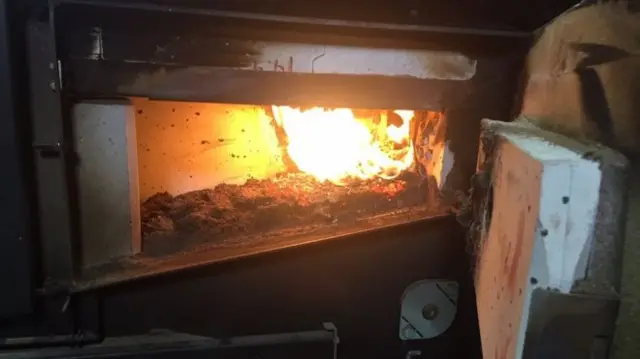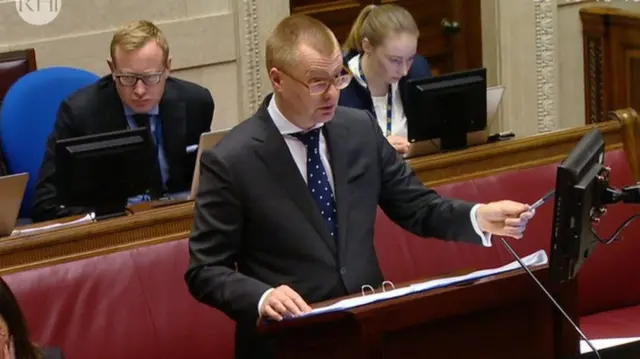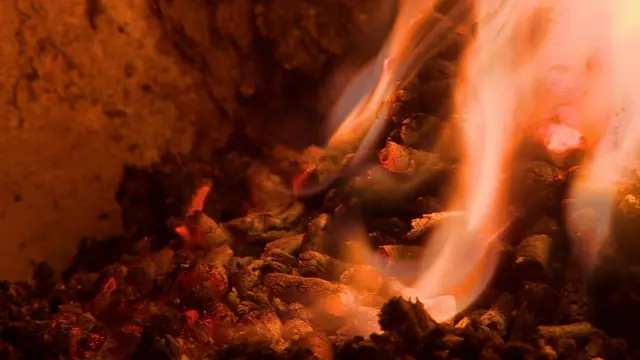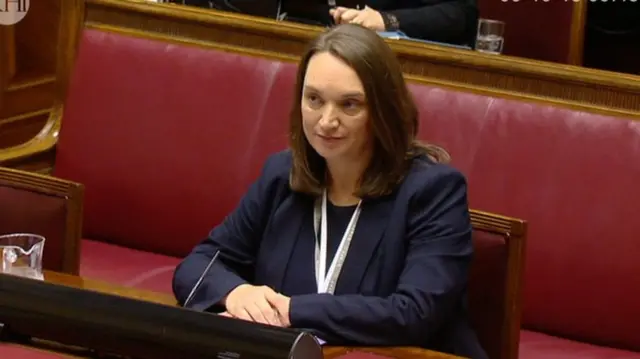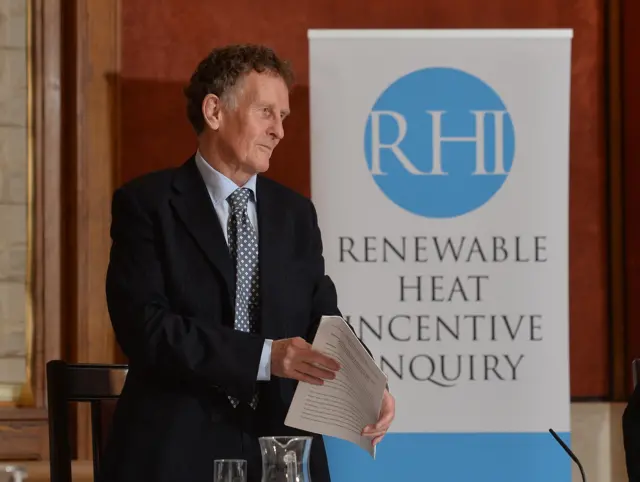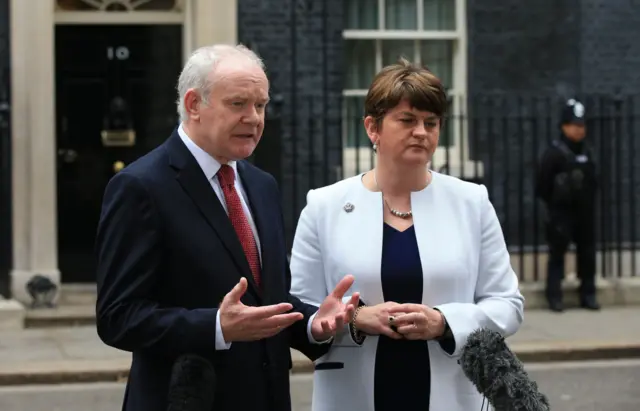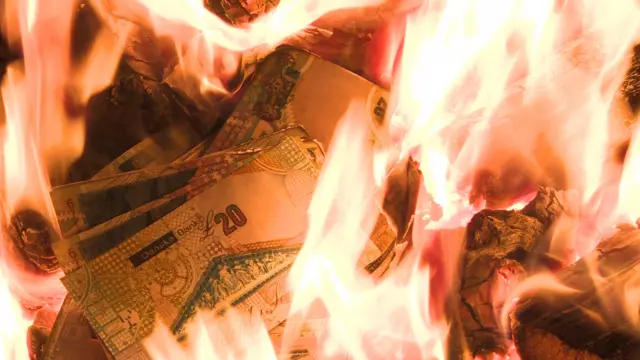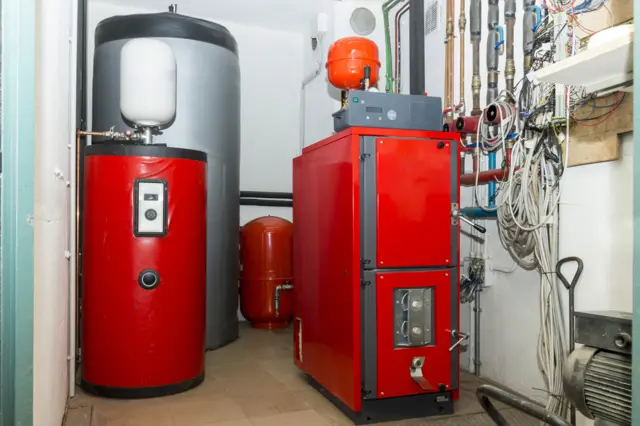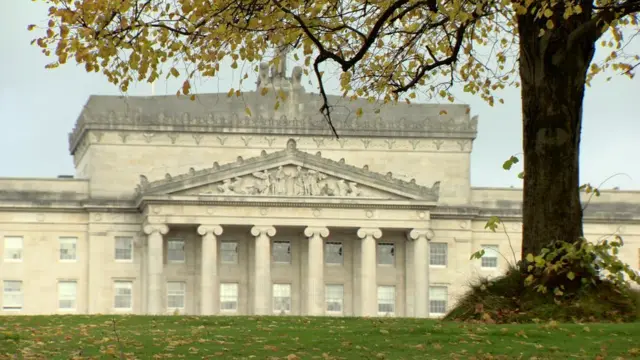'Very odd for RHI changes to be announced before approval'published at 12:06 BST 9 October 2018
It was "very odd" for the changes to the RHI scheme in autumn 2015 to be announced by DETI before they had been agiven approval by the Department of Finance, says Emer Morelli.
 Image source, PA
Image source, PAShe refers to her experience on working on policy in the civil service, explaining that the approval process "is there... for a reason".
She says that before a policy is set it's essential to "get it right", adding: "Once it's in the public domain... it's hard to revoke and come back from."
